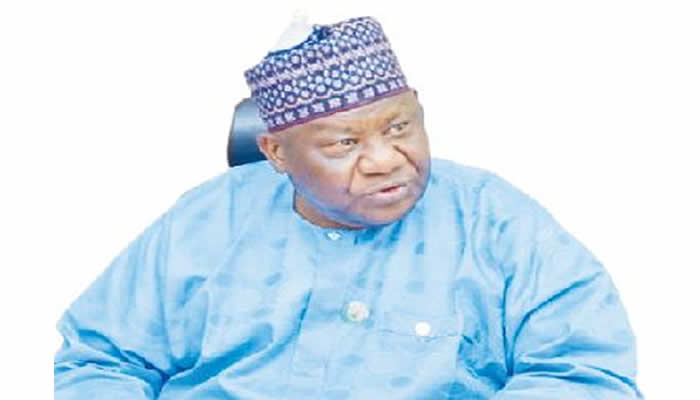Dasuki Arabi, Director-General of Nigeria’s Bureau of Public Service Reforms (BPSR), details the agency’s crucial role in modernizing the nation’s civil service. Established in 2004, the BPSR spearheads the design, implementation, monitoring, and evaluation of reforms across all government ministries, departments, and agencies (MDAs). Its creation was partly influenced by international pressure for public sector reform tied to debt relief during the Obasanjo administration. The BPSR distinguishes itself by employing a homegrown reform strategy, the National Strategy on Public Service Reforms, developed collaboratively with Nigerian experts and tailored to the country’s specific context. This strategy stands in contrast to previous reform attempts that relied on borrowed models and has proven more effective in driving sustainable change.
The National Strategy rests on four key pillars. The first focuses on strengthening governance by enhancing transparency, accountability, and proactive anti-corruption measures. The second pillar emphasizes aligning government operations with national development plans, a critical step towards achieving measurable progress and data-driven governance. The third pillar centers on public financial management, leveraging technology through initiatives like the Integrated Personnel and Payroll Information System (IPPIS) and the Treasury Single Account (TSA). These tools have streamlined financial processes, curbed corruption, and improved transparency in government spending. The fourth pillar prioritizes civil service administration and management, focusing on capacity building, performance management, and the transition to a digital work environment. This includes initiatives like performance-based appraisals, succession planning, mentorship programs, and a drive towards a paperless public service by 2030. These combined efforts aim to equip civil servants with the skills and tools necessary for a modern, efficient, and accountable public sector.
A major focus of the BPSR’s work is the digitalization of the public service. This transition, accelerated by the COVID-19 pandemic, aims to enhance efficiency, transparency, and accessibility of government services. The BPSR has partnered with agencies like the National Information Technology Development Agency (NITDA) to improve the digital literacy of public servants, addressing a significant skills gap identified in recent years. Beyond technical skills, the BPSR also emphasizes cultural change within the civil service, promoting a service-oriented mindset and shifting attitudes towards accountability and performance. These efforts extend to engaging citizens through initiatives like the scorecard program, which ranks MDAs based on their online service delivery and transparency. This program encourages accountability and provides valuable feedback for continuous improvement.
Addressing concerns about persistent corruption within the civil service, Arabi acknowledges the slow pace of change but highlights the significant progress achieved through reforms. He emphasizes that the fight against corruption is a collective responsibility requiring a shift in societal attitudes. The digitalization of processes, he argues, is key to minimizing opportunities for bribery and promoting transparent transactions. He points to the success of IPPIS and TSA in preventing ghost workers and fraudulent financial manipulations. While recognizing that corruption exists beyond the public sector, Arabi maintains that the reforms have significantly reduced corruption within government and laid the groundwork for further improvements. He underscores the importance of continued public awareness campaigns to highlight the successes of these reforms and foster public trust in the evolving civil service.
Arabi outlines several key performance indicators (KPIs) used by the BPSR to assess the impact of reform initiatives. These include target result areas, specific objectives, and measurable outcomes linked to each reform project. The BPSR utilizes a federal monitoring and evaluation framework to track progress and ensure accountability across MDAs. An example of a KPI is the percentage of digitalization achieved within an agency, reflecting the progress towards a paperless government. The BPSR regularly conducts impact assessment perception surveys to gauge the effectiveness of implemented reforms and identify areas for improvement. This data-driven approach ensures that reforms are aligned with stated objectives and contribute to tangible improvements in service delivery.
Implementing reforms has presented challenges, particularly in overcoming resistance to change and securing adequate funding. Arabi highlights the difficulty in shifting ingrained practices and navigating institutional rivalries. The BPSR has addressed these challenges through persistent engagement with MDAs, fostering collaboration, and leveraging the support of political leadership. While initial funding came from development partners, the BPSR is now advocating for greater government budgetary allocation to ensure the sustainability of reform initiatives. Arabi emphasizes the importance of building consensus and aligning efforts across different government bodies to overcome resistance and drive meaningful change. He also stresses the need for ongoing capacity development and collaboration with research institutions to tailor reforms to the evolving needs of the public service.
Looking ahead, Arabi outlines a vision of a world-class Nigerian public service, aiming to rank among the top 20 globally. He emphasizes the need for sustained efforts in digitalization, capacity building, and fostering a culture of continuous improvement. The BPSR is committed to working with state and local governments to extend the reach of reforms beyond the federal level, recognizing the significant impact this would have on service delivery across the country. Arabi calls for continued support from international development partners to sustain the momentum of reform and achieve the ambitious goals set out in the national strategy. He concludes by reiterating the BPSR’s commitment to engaging with citizens and prioritizing customer experience to ensure that public service reforms translate into tangible improvements in the lives of Nigerians.


